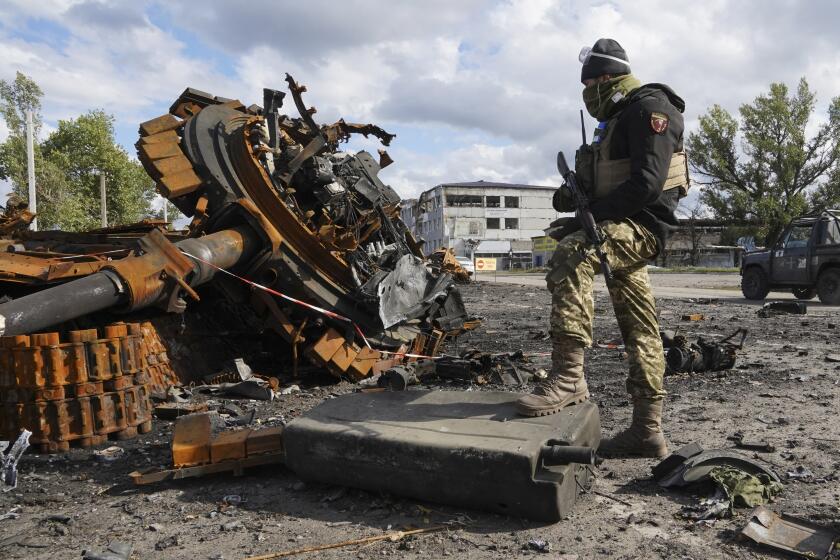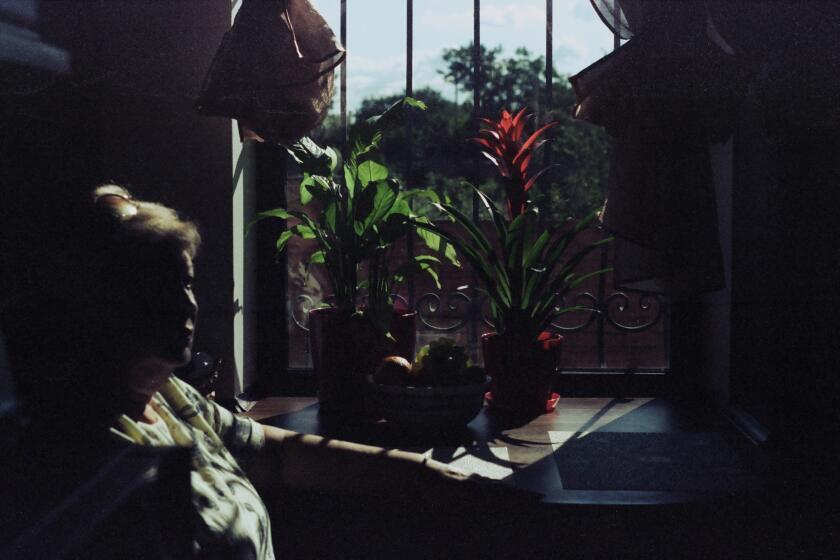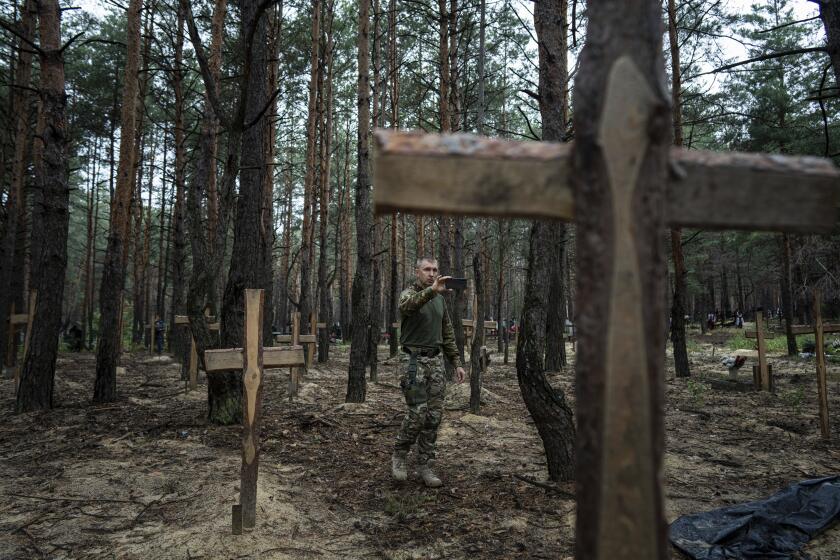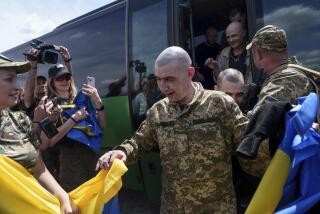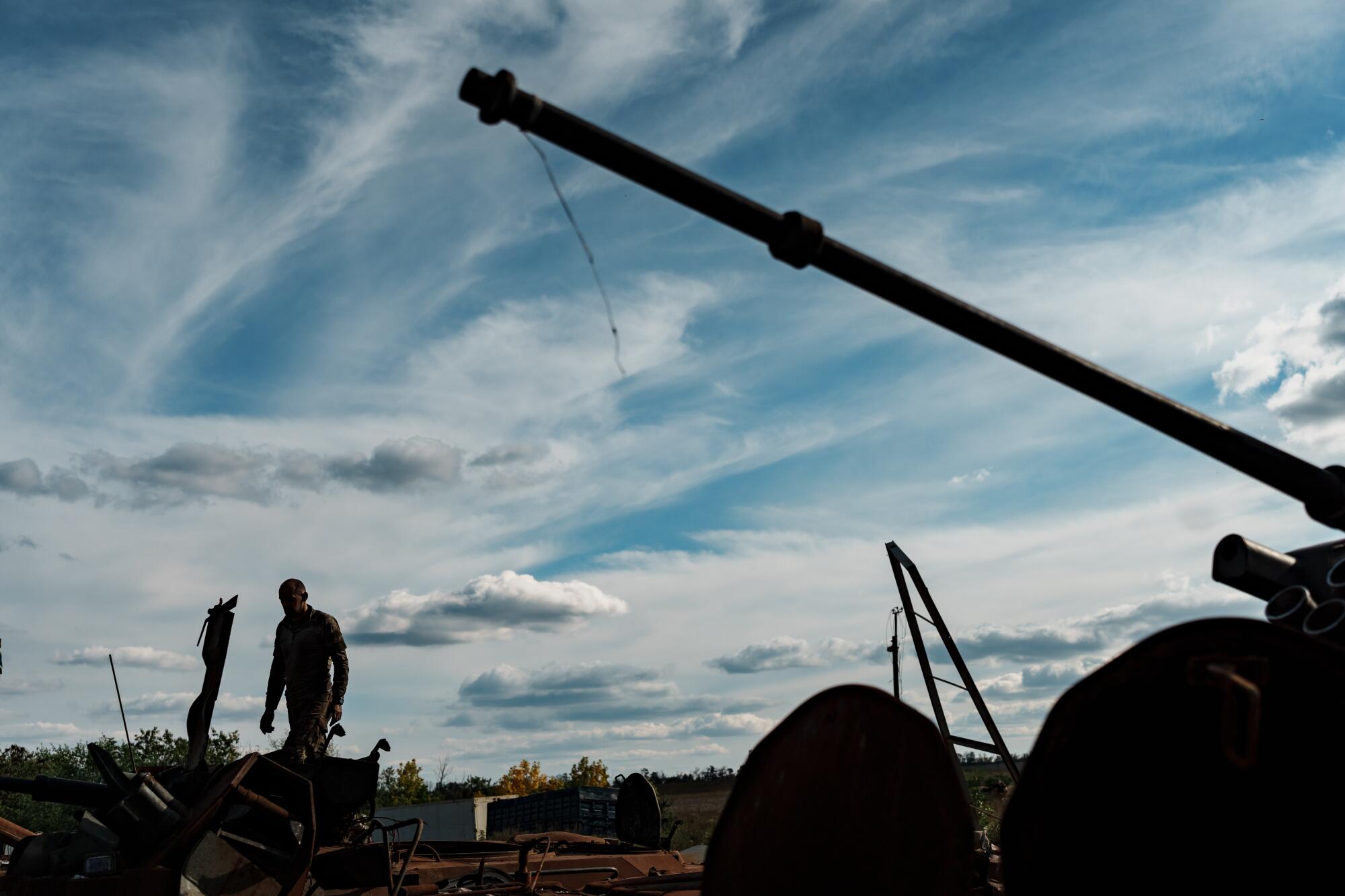
LUBIANKA, Ukraine — When Olga Shcherba learned that her husband might be in Russian captivity, she was relieved.
It was a strange feeling. But it was better than the alternative.
Bohdan Shcherba, a 31-year-old industrial worker from outside Kyiv, had gone missing two days after Russia invaded Ukraine. Though devastating, word that he had been sighted in a detention camp in western Russia meant he might still be alive.
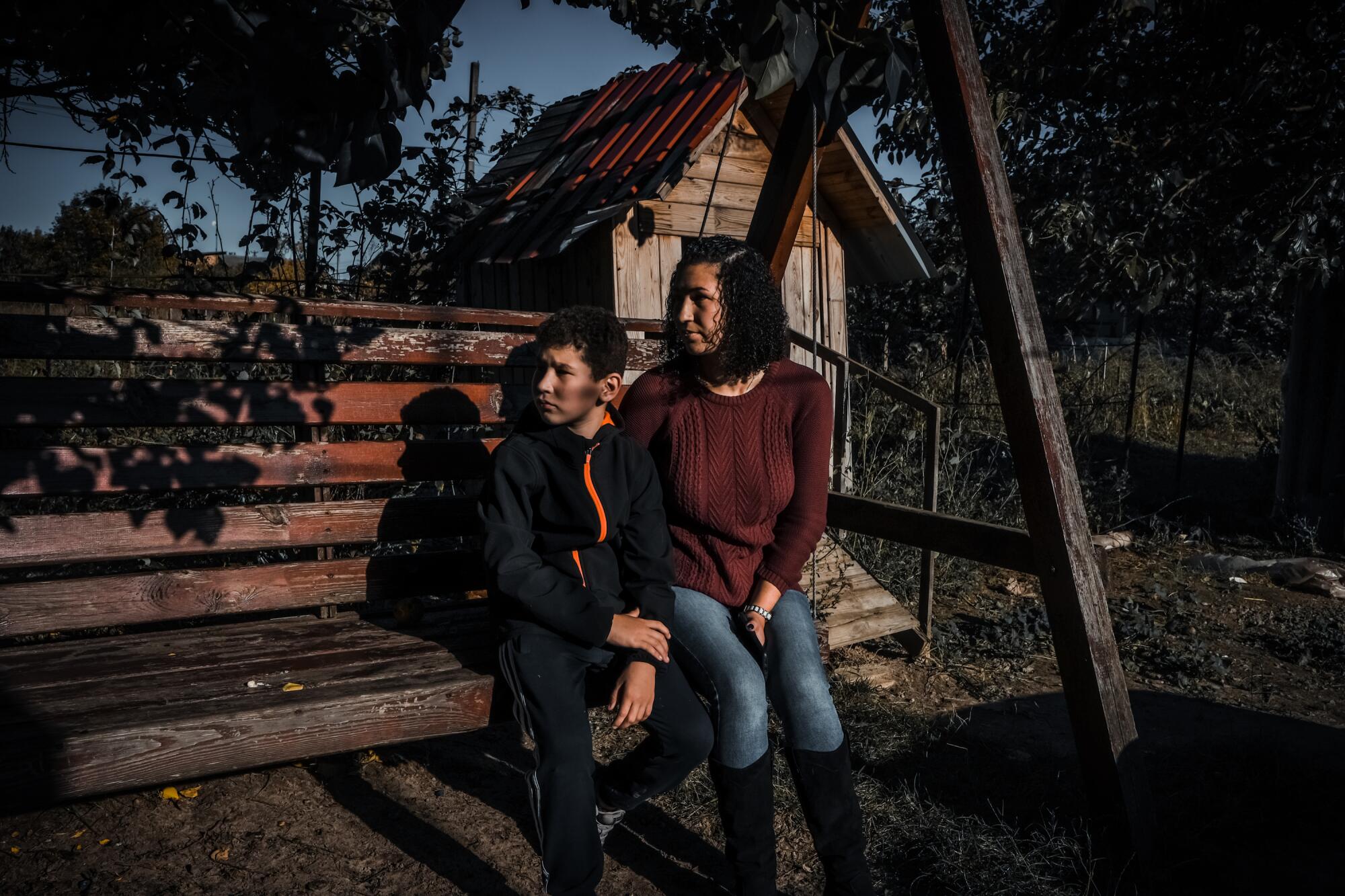
Hundreds and perhaps thousands of Ukrainian civilians who disappeared in Russian-occupied areas are imprisoned in Russia, human rights groups say. By formal and informal channels, relatives are gleaning what information they can about their fate — and desperately trying to negotiate their release.
Some of these civilians are being held because their captors think they have information that would help the occupiers, or because they are suspected of ties to the Ukrainian military, or because they could prove useful as hostages, according to groups trying to secure their freedom.
Rights organizations and Ukrainian officials say the Russian tactic of forcibly “disappearing” Ukrainians in occupied areas also serves a cynical military end: terrorizing and demoralizing the captives’ compatriots and relatives.
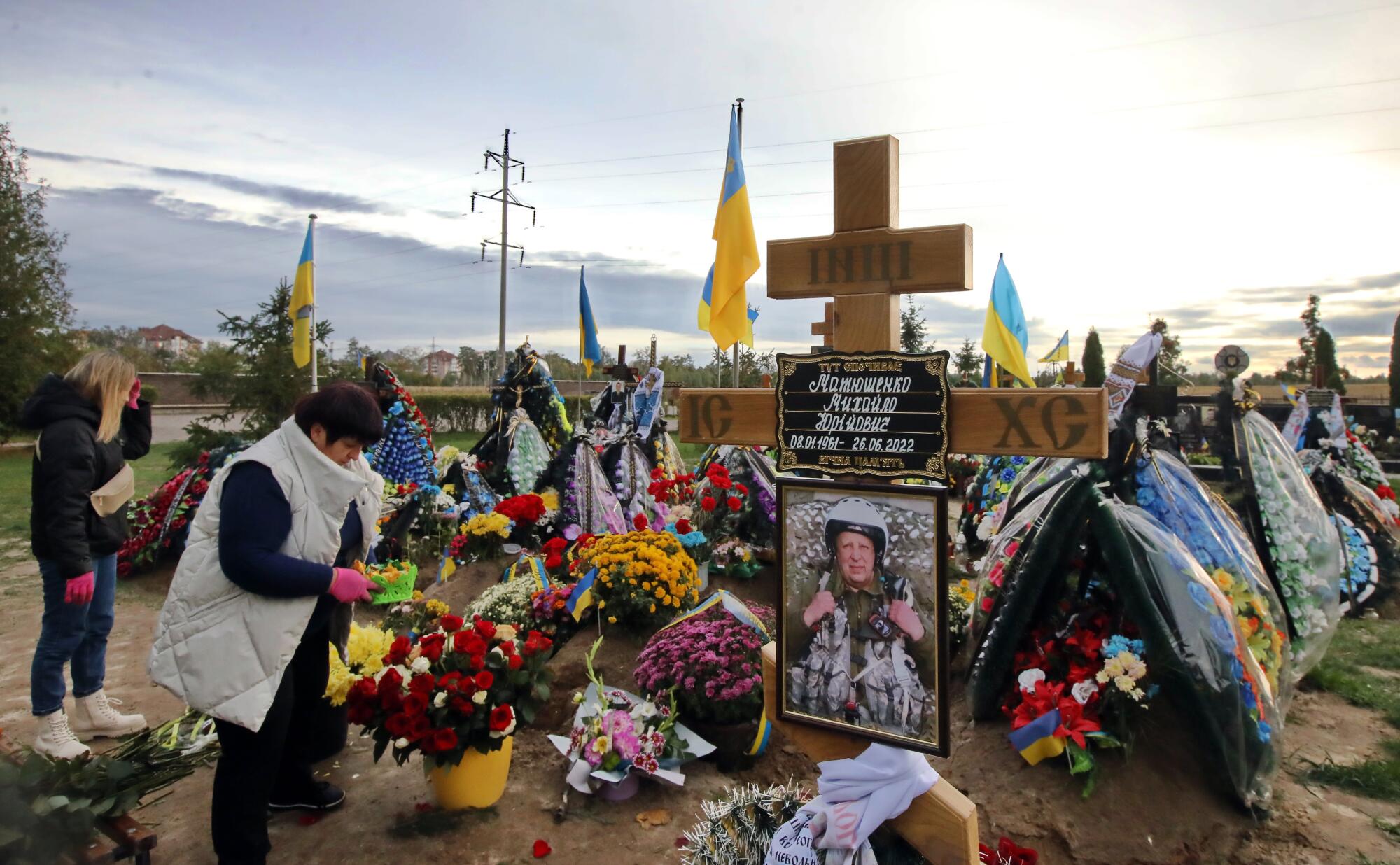
In addition to her husband, Shcherba is also trying to bring home her brother, Ramiz Musaev, 24, and a friend, Roman Kissel, 30. The three men disappeared Feb. 26 near the Kyiv suburb of Bucha — which was to become notorious for torture and killings of civilians during a monthlong Russian occupation.
As Russia’s military performance weakens, a notorious mercenary group, long part of the Ukraine fight, steps into spotlight.
With the war in its eighth month, rights groups say the pool of missing civilians believed to have been spirited away to Russia from occupied areas is growing. Details of many disappearances are coming to light only as Ukrainian forces retake areas in the south and east that had been under Russian control up until only weeks or days ago.
Shcherba, 29, is being assisted in her quest by the Center for Civil Liberties, a Ukrainian group that last week shared a Nobel Peace Prize with a Russian rights group and a Belarusian activist.
Natalia Yashchuk, a project coordinator for the center, said the group had recorded 671 cases of civilian kidnappings since the war began. Of those, 205 captives have been freed.
Under Geneva Convention mandates applicable to the war in Ukraine, civilian detainees should be treated as “protected persons,” distinct from prisoners of war. But rights groups say Moscow’s forces ignore those provisions.
“International humanitarian law prohibits individual or mass forcible transfers of civilians from occupied territory to the territory of the occupying power, which can constitute a war crime,” Human Rights Watch said in a July report.
Ukrainian authorities believe cases of sexual assault by Russian occupiers are vastly underreported. Shame and many factors underlie survivors’ unwillingness to report rapes.
The New York-based group called for the immediate release and return of all Ukrainian civilians detained in Russia, and demanded combatants or civilians in Russian custody be registered with the International Committee of the Red Cross.
In June, the United Nations Human Rights Monitoring Mission in Ukraine said Russian forces and their affiliated armed groups had seized hundreds of civilians in areas they controlled. Many of those caught in the dragnet were subjected to torture and other ill treatment, with an unknown number transported to Russia, the U.N. said.
Months of stress have taken their toll on the families of the missing. Shcherba said she often found herself unable to eat or sleep. Her voice was subdued as she described the fighting that erupted in the village of Lubianka, where the family lives, just after the Russians pushed their way into the area during a failed attempt to seize the Ukrainian capital.
Together with her three children, her mother and other family members, Shcherba spent 10 days hiding in a kindergarten basement, finally making it out of the Russian-occupied area on March 12. Reaching safety in western Ukraine, the family again had internet access, and Shcherba’s uncle found a video online that had been recorded by a Russian journalist at Hostomel airport — which was the scene of crucial early fighting near Kyiv.
A Ukrainian medic captured in the deadly siege of Mariupol tells U.S. lawmakers how Russians routinely tortured her and other prisoners, some fatally.
In the background, it showed three men in civilian clothing who had been captured: Shcherba’s husband, her brother and the friend.
“I felt better, because I realized I had hope,” she said. “They were alive, at least, and that meant they could potentially be rescued.”
That optimism did not last long. In early April, when Russian forces retreated from the areas around Kyiv, images of mass graves and atrocities committed by Russian forces emerged. Among these, Shcherba spotted a body that she believed might have been that of her brother, plunging her into despair. It turned out not to be him.
Then a few days later, she received a call from a Ukrainian soldier who had recently been released from captivity in a detention camp in the Kursk region, in western Russia. There, the soldier told her, he had seen the three missing men.
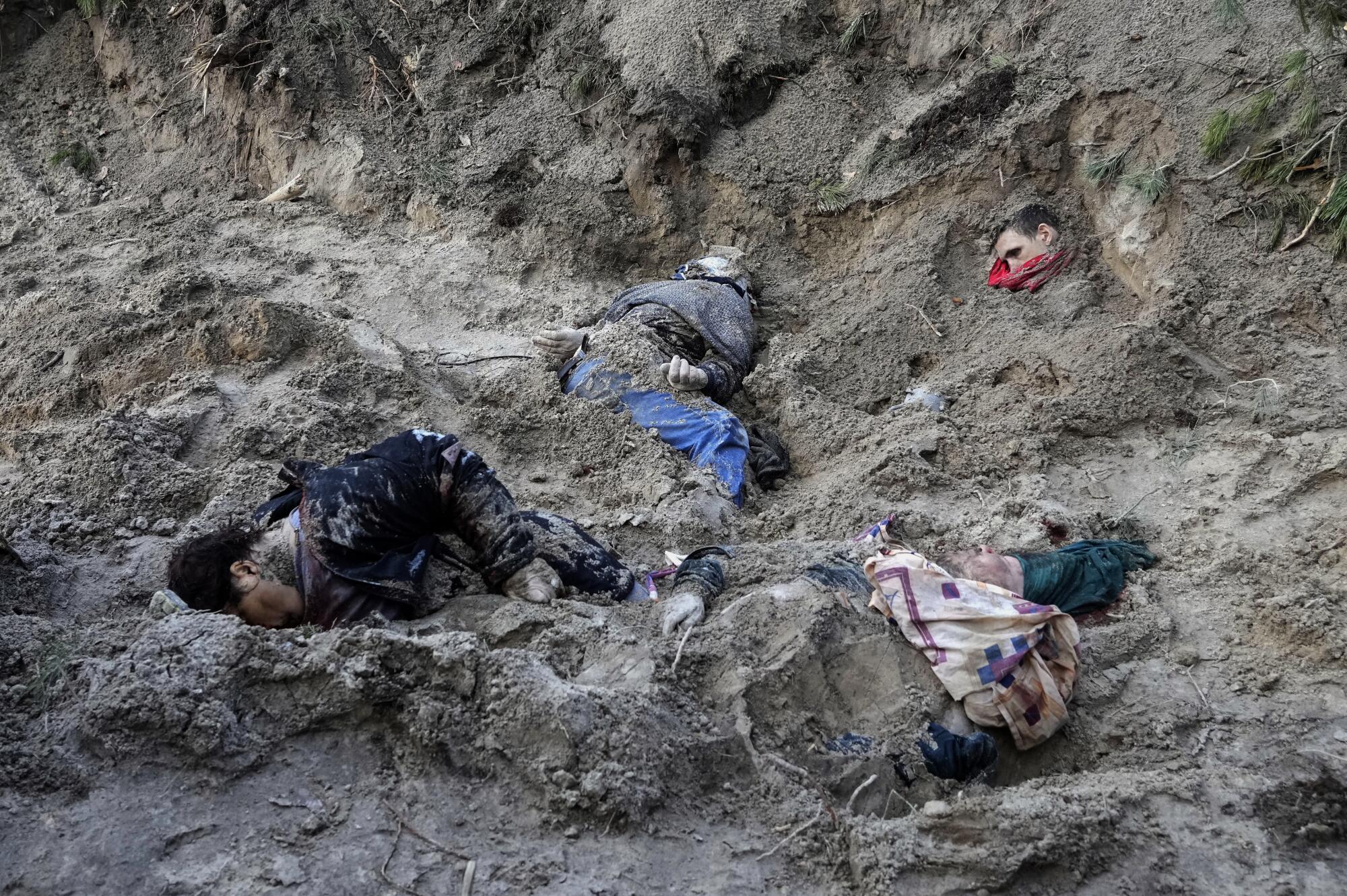
Like their three dozen fellow prisoners, the men were weak and emaciated, sharing a single person’s share of rations among them, the soldier recounted. Their quarters were cramped and squalid, and captives were routinely beaten.
Ukrainian authorities begin recovering bodies from a newly found mass burial site in a forest recaptured from Russian forces.
The Russians apparently suspected the trio of working for Ukrainian intelligence, the freed soldier told Shcherba. She insisted that none of the three had any ties to the Ukrainian military or intelligence, and the Center for Civil Liberties backed her assertion.
On a recent bright October day, Yashchuk, who has been helping coordinate the group’s efforts to free the men, met with Shcherba in Kyiv. There have been signs of progress, Yashchuk explained, but the specifics of the contacts with the Russian side were being kept under wraps.
Shcherba’s spirits were buoyed by the news that the group had helped free Viktoria Andrusha, a teenager accused of providing the Ukrainian army with locations of Russian forces in March.
Back home in her village — now peaceful and wreathed in autumn foliage — Shcherba plucked perfect, bright-red apples from a tree outside her home and offered them to visitors. Inside, her elderly mother, Valentina, described her anguish over the plight of her son, her son-in-law and their friend.
The couple’s 7-year-old twin daughters, who had been watching a children’s television program on the couch, clutched their ears when an air-raid alert sounded from apps on the family’s mobile phones. Lately, the alerts have been frequent across the country, which was pounded this week by Russian bombardment targeting civilians and energy installations.
In August, Shcherba received a letter that bore a Russian postmark and was dated in May. Purportedly from her husband and brother, the Russian-language message disparaged the Ukrainian government. But the family knew the handwriting was not that of their loved ones.
Then, in September, a flare of hope: Another letter arrived, this one from Shcherba’s brother. It was written in Ukrainian and seemed authentic. He avoided any mention of mistreatment, writing that the three men were doing all right, and that they loved and missed everyone.
Shcherba said that if she could speak to the Russian captors, she would ask them to think of their own families, and let the Ukrainian prisoners be with theirs.
“Let our men come back to us,” she said.
Adler is a special correspondent. Times staff writer Laura King in Washington contributed to this report.
More to Read
Sign up for Essential California
The most important California stories and recommendations in your inbox every morning.
You may occasionally receive promotional content from the Los Angeles Times.
